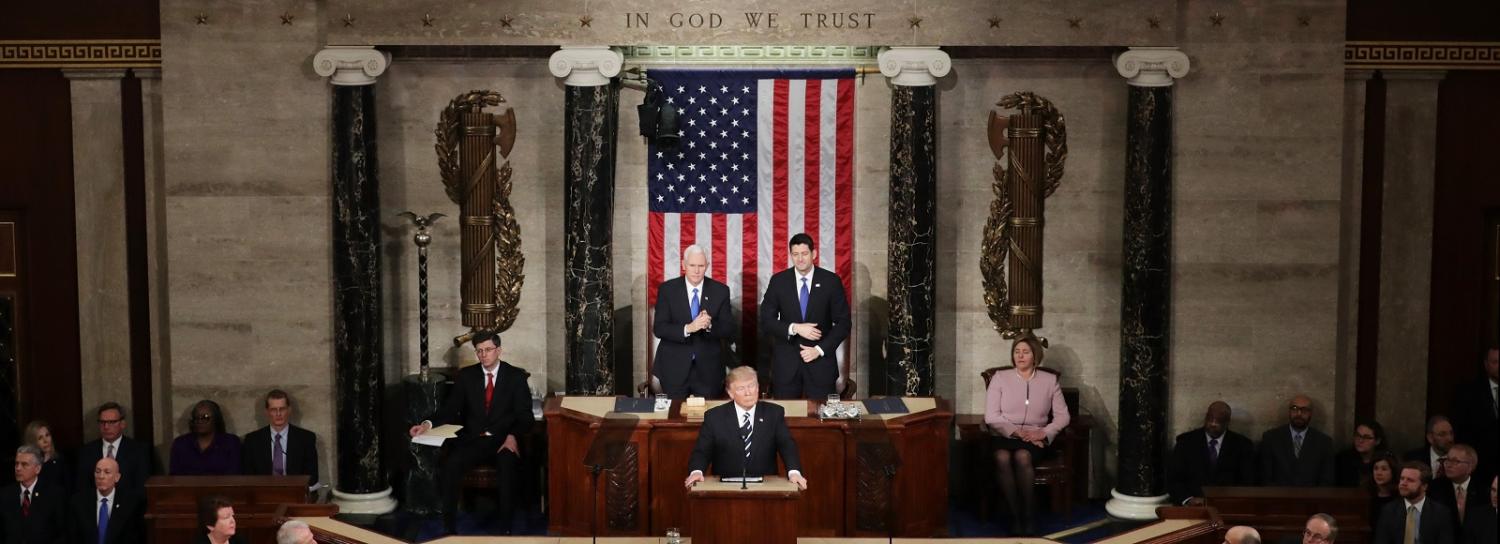The opening lines in US President Donald Trump's first speech to a Joint Session of Congress could have come from any recent president, with optimistic stock phrases about a 'new chapter of American greatness', a 'new surge of optimism', and a 'renewal of US spirit.' At first it seemed like a different president than the one inaugrated a month ago. He even said 'allies will find US ready to lead'.
But Trump quickly swung back to the rhetoric that has so unnerved allies and so surprised those (myself included) who assumed you could not get elected to office in the US on a platform of pessimism.
What remains striking is not just that Trump says plainly that America is in decline, but that he puts this so starkly in terms of opposition to globalisation and American internationalism. For instance, his argument is not just that America has under-invested in its own infrastructure, but that it has done so because of its foreign wars. That's an extraordinary turn-around. Many Republicans who cheered when Trump mentioned the $6 trillion lost in Middle East conflicts were not so long ago full-throated supporters of those conflicts, and of America's special place in the world.
One exception to Trump's America-firstism was his promise to 'extinguish this vile enemy (ISIS) from our planet'. This would be done in concert with international partners, including Muslim nations, he promised. It's not surprising that Trump promised to rain hell on ISIS, but it is unusual that he would do it in the name of 'the planet'.
It's still hard to get used to just how radical some of this language sounds coming from a post-Cold War US president. Trump gave a full-throated defence of economic protectionism. He even called it that. Past presidents and senators would have used woolier language and legislative tricks to favour US industries over foreign competitors, but not Trump.
No doubt Australian news sites will make much of the fact that Trump name-checks Australia in regard to its immigration policy. It's a reminder that our system is in many ways tougher than what Trump has proposed.
Trump's plan to introduce paid family leave is a reminder that while he is an extremist in some senses, he not an ideological extremist in conventional left-right terms. Many of his positions are quite liberal on the spectrum of Republican opinion, and others are downright heretical. For those who painted Trump as a fascist, this section and in fact much of this speech will jar.
As expected, Trump announced a massive increase in defence spending, but he said almost nothing on what it will actually be for.
The scenes of the tearful military widow Carryn Owens during a long standing ovation will dominate the news coverage. They are extraordinary images which, as Trump knows in his bones, will be much more powerful than his words.
Trump said he strongly supports NATO but insists others meet their obligations. Apparently 'the money is pouring in'. Yet as every other US president has learned, allies won't have much incentive to pay their 'fair share' if the US keeps spending more, as Trump has promised to do.
'My job is not to represent the world. My job is to represent the United States of America'. Welcome to the post-American era. It is a transition which in fact began under Obama, but which has now been given full voice by Trump: America is not going to disappear from the international scene, but it is transitioning from an indispensable nation, the guarantor of the global rules-based order, to a normal great power.
Photo: Chip Somodevilla/Getty Images

